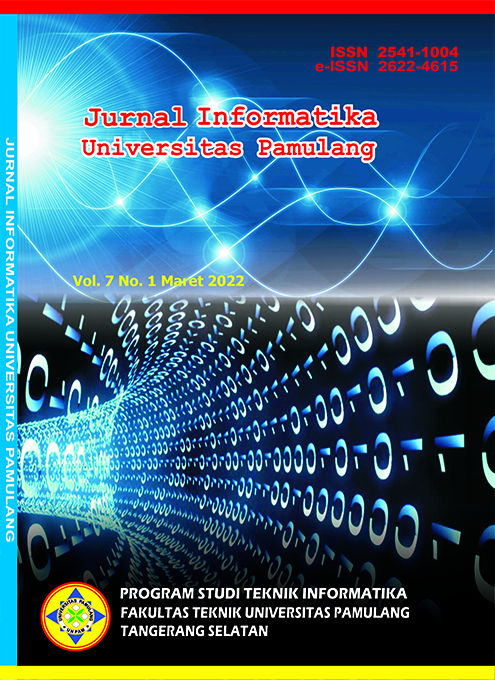Valuasi Teknologi Terhadap Produk Alat Kesehatan Industri Manufaktur Sebagai Upaya Peningkatan Inovasi dan Daya Saing Menggunakan Metode TMCRL (Technology Manufacturing Commercialization Readiness Level)
DOI:
https://doi.org/10.32493/informatika.v7i1.16720Keywords:
technology, sertification, collaboration, innovation, valuationAbstract
Currently, technological mastery is needed in various industrial sectors, so that Indonesia does not lag behind in technology and is able to create innovative products and be able to compete with the global market. The condition is that the products in the Indonesian market are dominated by the import market, including the medical device sector. For this reason, as an effort to reduce the number of imports, it can be done by further maximizing the capacity to use domestic products that are used by industry players and the public there is trust and pride in domestic products and encourage an increase in the number of products resulting from research and domestic innovation, including Direct Digital Rongten devices. (DDR) domestic products, of course, are more economical and of high quality. Technology valuation of DDR products needs to be carried out through identification and measurement to find out the mapping related to technology readiness and an overview of product downstreaming and commercialization. From the measurement results using the TMCRL method, where TRL is at level 5 (levels 1-9), MRL is at level 2 (levels 1-10), and CRL is at level 2 (levels 1-9). Based on the mapping, it can be seen that the product is still in the applied research stage, and still needs to be prepared to enter the development stage, including quality testing and certification. For this reason, the choice of industrial development strategy in accelerating DDR production is to strengthen the innovation system by involving health technology product innovation players in pentahelix collaboration (government, industry, universities, non-governmental organizations, as well as financing & investment institutions).
References
BPPT, 2021. Menuju Kemandirian Alat Kesehatan Melalui Inovasi Anak Negeri. Retrieved from https://www.bppt.go.id/en/berita-bppt/menuju-kemandirian-alat-kesehatan-melalui-inovasi-anak-negeri
Cyberwatching, 2019. Methodology for the Classification of Projects/Services and Market Readiness. retrieved from https://www.cyberwatching.eu/sites/default/files/D2.3_Methodology-for-the-classification-of-projects-and-market-readiness_vFinal.pdf
Kemenkeu, 2019. PP No.45 tahun 2019 tentang dan PMK Nomor 128 Tahun 2019 yang mengatur pemberian Insentif Super Tax Deduction retrieved from https://www.kemenkeu.go.id/publikasi/berita/insentif-super-tax-deduction-solusi-bagi-industri-dan-penyiapan-sdm-unggul/
Kominfo, 2021. Pemerintah Dorong Kemandirian Sektor Kesehatan. Retrieved from https://www.kominfo.go.id/content/detail/36666/pemerintah-dorong-kemandirian-sektor-kesehatan/0/berita
Kompas.id. (2021). Mengembangkan Alat Radiografi Berbasis Sistem Digital. retrieved from www. Kompas.id: https://www.kompas.id/baca/ilmu-pengetahuan-teknologi/2021/07/26/mengembangkan-alat-radiografi-berbasis-sistem-digital
LAN, 2021. Isu Aktual Pengkajian Kebijakan Terintegrasi. Retrieved from http://ppid.lan.go.id/wp-content/uploads/2021/07/4.-Laporan-Kajian-Kebijakan-Terintegrasi-2.pdf
Media Indonesia, 2021. MRL, Dari Riset ke Produksi Massal. Retrieved from www. Mediaindonesia.com: https://mediaindonesia.com/opini/390414/mrl-dari-riset-ke-produksi-massal
NYSERDA, 2020. New York State Energy Research and Development Authority. NYSERDA Technology and Commercialization Readiness Level Calculator Tool.
Rahmi Rosita, 2021. Pengaruh Pandemi Covid-19 Terhadap Umkm Di Indonesia. Jurnal Lentera Bisnis Vol. 9 No 2, Nov 2020
Ristekbrin, 2019. UU. No.11 tahun 2019 tentang Sistem Nasional Ilmu Pengetahuan dan Teknologi (UU Sisnas Iptek) . retrieved from https://risbang.ristekbrin.go.id/publikasi/berita-kegiatan/kemenristekdikti-uu-sisnas-iptek-titik-cerah-perbaikan-ekosistem-riset/
https://mediaindonesia.com/opini/390414/mrl-dari-riset-ke-produksi-massal Satrio Utomo, Agus Nugroho (2021). Pentingnya Membangun Platform Kolaborasi Multi-Stakeholder sebagai Key Enabling Factor dalam Membangun Ekosistem Inovasi Industri 4.0 di Era New Normal, Jurnal Informatika. Vol. 6, No. 1, Maret 2021. Hal.67-76
Downloads
Published
Issue
Section
License
Authors who publish with this journal agree to the following terms:
- Authors retain copyright and grant the journal right of first publication with the work simultaneously licensed under a Creative Commons Attribution-NonCommercial 4.0 International (CC BY-NC 4.0) that allows others to share the work with an acknowledgement of the work's authorship and initial publication in this journal.
- Authors are able to enter into separate, additional contractual arrangements for the non-exclusive distribution of the journal's published version of the work (e.g., post it to an institutional repository or publish it in a book), with an acknowledgement of its initial publication in this journal.
- Authors are permitted and encouraged to post their work online (e.g., in institutional repositories or on their website) prior to and during the submission process, as it can lead to productive exchanges, as well as earlier and greater citation of published work (See The Effect of Open Access).
Jurnal Informatika Universitas Pamulang have CC-BY-NC or an equivalent license as the optimal license for the publication, distribution, use, and reuse of scholarly work.
In developing strategy and setting priorities, Jurnal Informatika Universitas Pamulang recognize that free access is better than priced access, libre access is better than free access, and libre under CC-BY-NC or the equivalent is better than libre under more restrictive open licenses. We should achieve what we can when we can. We should not delay achieving free in order to achieve libre, and we should not stop with free when we can achieve libre.
Jurnal Informatika Universitas Pamulang is licensed under a Creative Commons Attribution-NonCommercial 4.0 International (CC BY-NC 4.0)
YOU ARE FREE TO:
- Share : copy and redistribute the material in any medium or format
- Adapt : remix, transform, and build upon the material for any purpose, even commercially.
- The licensor cannot revoke these freedoms as long as you follow the license terms





